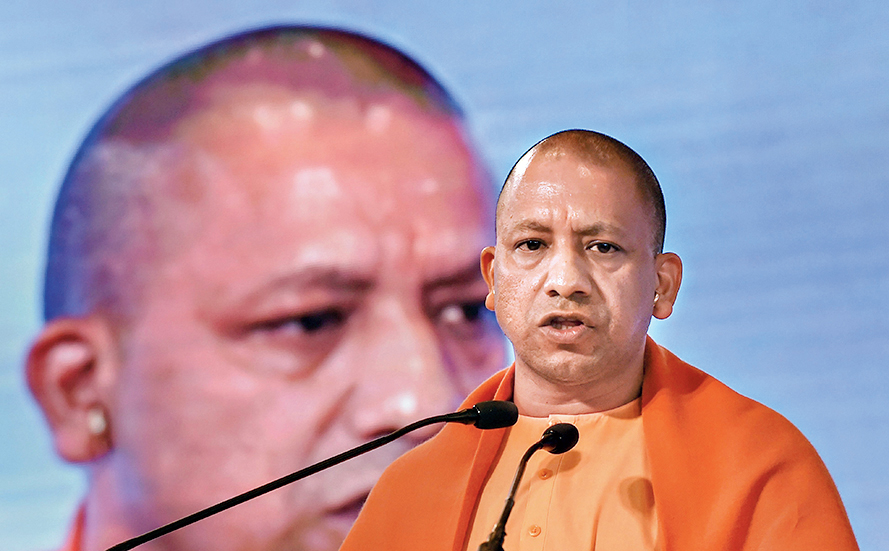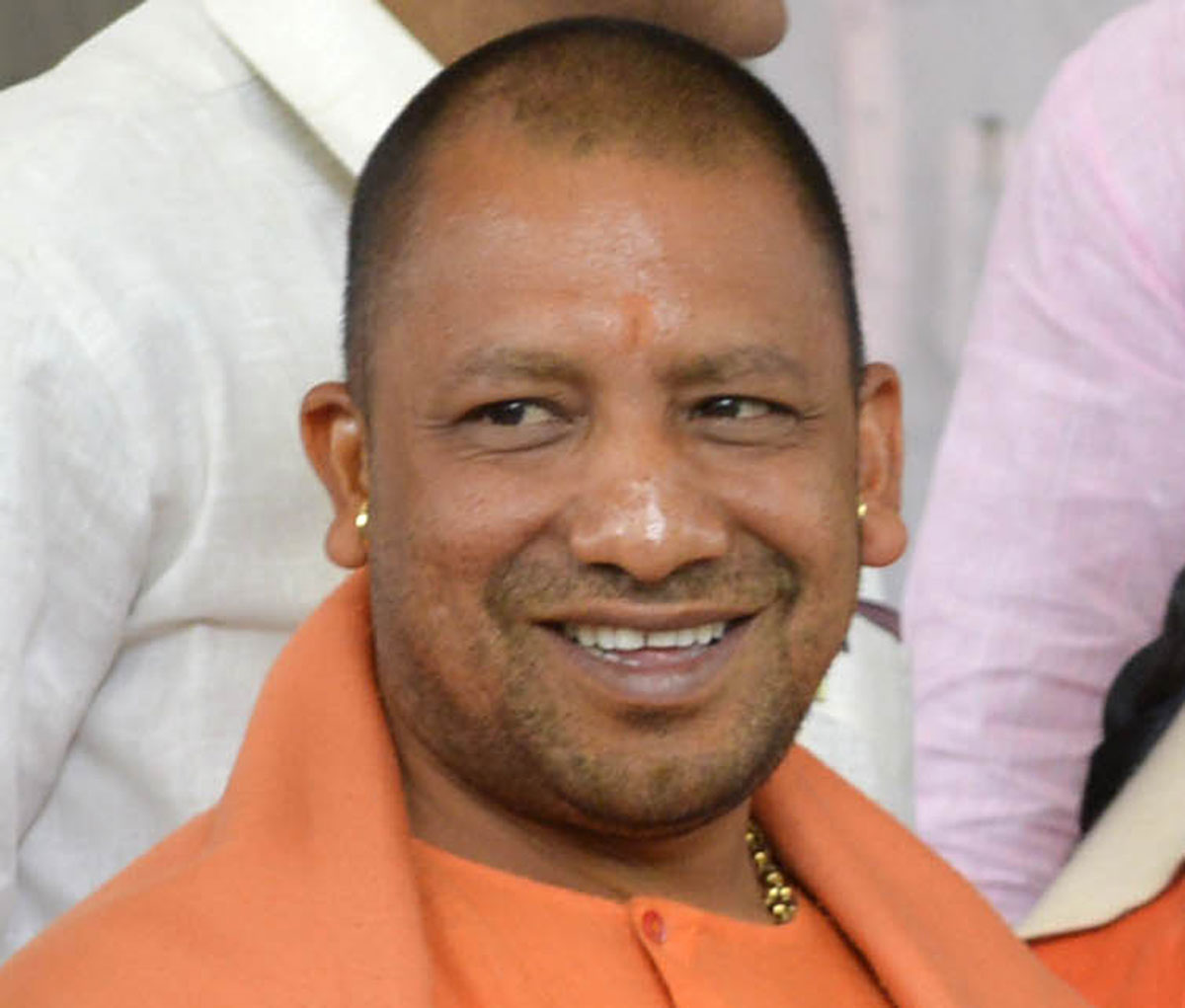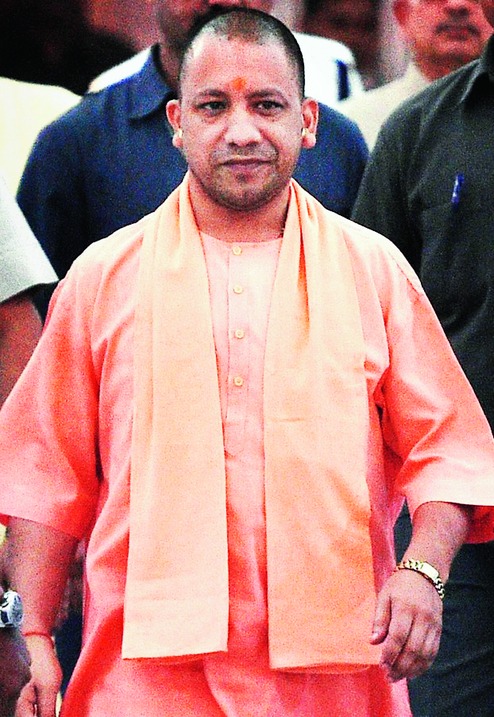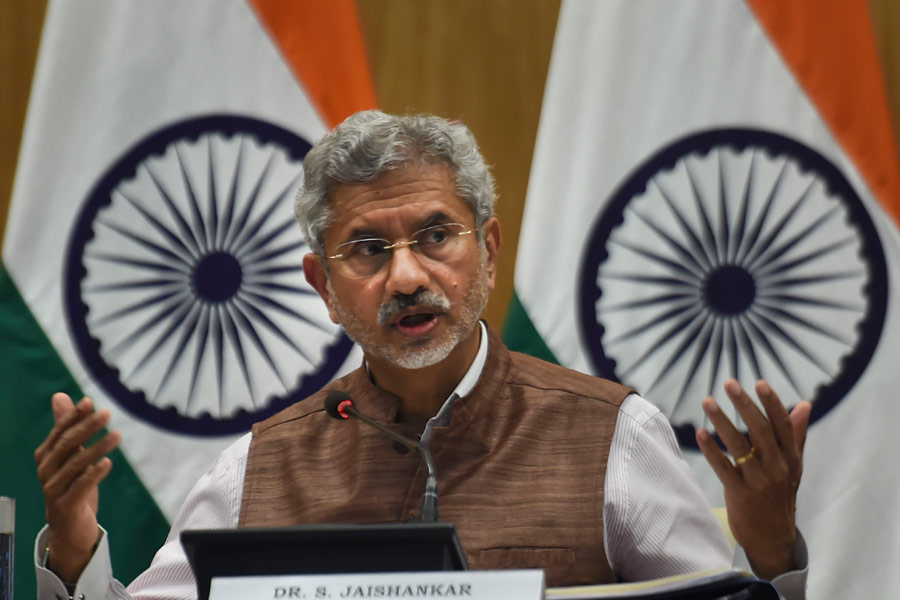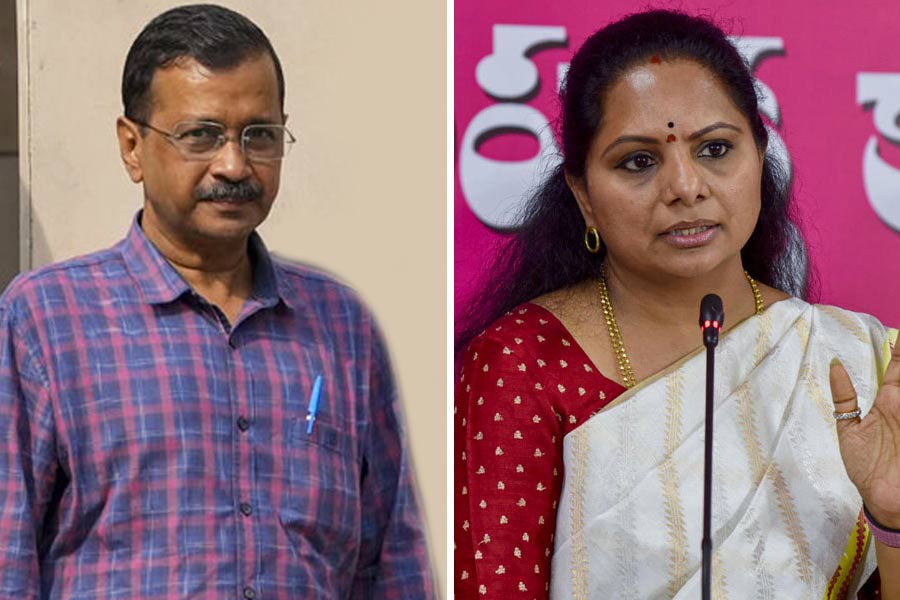Before the ascendancy of Narendra Modi, white-collar apologists for the Bharatiya Janata Party used to argue that power would moderate its feral instincts. Some argued that the BJP could become an analogue of Europe’s great centre-right party, the Christian Democratic Union, an avowedly Christian party that was, nonetheless, the cornerstone of a non-sectarian political consensus. A.B. Vajpayee was seen as the great reconciler, a veteran parliamentarian mindful of the Republic’s inclusive traditions. Late in his career, L.K. Advani, pioneering rath yatri, auditioned, implausibly and unsuccessfully, for the role of Jawaharlal Nehru.
Angela Merkel has led the CDU through the whole of this young century and in the course of that long tenure, she has remade it in her image. She has consolidated the unification that Helmut Kohl had overseen and dragged her party so far from its right-wing roots that it is now the very embodiment of the European social-democratic consensus. In some ways, the CDU under her leadership hews left of Atlanticist centre parties like New Labour (as was) in Great Britain and the Democratic Party (as is) in the United States of America. The near-terminal decline of the SPD in the 2017 elections is a tribute to Merkel’s success in so monopolising the centre that a centre-left party like the SPD is robbed of its raison d’être.
She has been punished for her radicalism: she quit as leader of the Christian Democrats (though not as chancellor) on Friday because of the resurgence of right-wing parties in provincial elections at the expense of the CDU. But even in its weakened state, this nominally majoritarian party squats over Germany’s liberal middle ground, with the Greens to its left and the racist-populist, Alternative for Germany, to its right.
India’s political trajectory has headed in the opposite direction. The BJP under Modi has so successfully remade the common sense of the Republic that the recently completed state elections in the Hindi heartland states — Madhya Pradesh, Rajasthan and Chhattisgarh — have seen the principal Opposition party, the Congress, conduct a purely anti-incumbency campaign that avoided any mention of the BJP’s calling card, its explicit, sometimes violent, majoritarianism.
In Rajasthan, where Pehlu Khan was lynched by Hindu vigilantes in Alwar last year for transporting cattle, and in Madhya Pradesh, where the BJP promises to create the world’s first welfare State for cows, the Congress is either silent on the matter of majoritarian violence or competitively vocal in its concern for cow comfort. This could be construed as a sensible defensive strategy in a polarised time in the larger cause of loosening the BJP’s stranglehold on Indian politics or a feeble capitulation to the ideological hegemony of Hindutva; both explanations feature mainstream Opposition politicians deferring to a völkisch nationalism.
It isn’t just the Congress’s unwillingness to call out the BJP’s bigotry that testifies to the radical rightward shift in India’s political mainstream, it’s also the BJP’s willingness to double down on its Hindutvavadi message in the arena of electoral politics. A newspaper survey of the BJP’s principal campaigners in the just-concluded state elections reported that the BJP’s “most sought after campaigner” wasn’t Narendra Modi or Amit Shah, but Uttar Pradesh’s chief minister, Adityanath. He addressed more rallies than either the prime minister or the BJP president in Chhattisgarh, Rajasthan and Madhya Pradesh taken together.
It’s a symptom of the galloping extremism of India’s ruling dispensation that just two years ago, in March 2016, the BJP’s most vehement fellow traveller, Anupam Kher, while defending the prime minister and his regime from charges of intolerance at The Telegraph’s annual debate, conceded, en passant, that there were extreme elements in the BJP who were ‘badtameez’, who dealt in ‘bakwas’ like the Yogi, who ought to be scolded, expelled from the party and jailed. Far from being expelled, this representative of Kher’s extremist ‘fringe’ was, that same month the following year, installed by the BJP’s high command as the chief minister of Uttar Pradesh.
And now Adityanath is the BJP’s star campaigner, dispatched to states as far afield as Kerala, Karnataka and Telangana. He’s widely mocked by liberals for presuming to teach Malayali politicians the rudiments of public health policy given the grotesque tragedy in the government hospital in Gorakhpur where more than 1,200 children died between January and August 2017, but they miss the point: he isn’t the BJP’s policy think tank: he is its Hindu mascot, its travelling brand. Regardless of what Modi and Shah may or may not say, Adityanath, by his ubiquity, reminds the BJP’s base of the feral majoritarianism that ultimately defines its appeal.
We haven’t heard from Anupam Kher since Adityanath’s elevation, but, more seriously, we haven’t heard from the Congress either. The ‘bakwas’ and ‘badtameezi’ that the pro-BJP actor felt characterised the discourse of the Hindu fringe go unaddressed and unanswered by the country’s principal Opposition party because the Congress deems it politic to sidestep a confrontation over Hindutva. Even as the Congress concluded a campaign in which its campaigners never let the ‘L’ word escape their lips, Adityanath, speaking in a public forum in the nation’s capital, declared that the lynching of a uniformed police officer, Inspector Subodh Kumar Singh, by a mob of cow vigilantes wasn’t a lynching at all, but an accident. He then, apropos of nothing, declared that all illegal slaughter, not just cow slaughter, was illegal in UP and put Bulandshahr’s district officials on notice: they would have to answer for the implementation of the law.
When the concerted murder of a serving policeman can be confidently explained away as an accident and the vigilante cause that sparked the murder valorised as the law of the land, it’s clear that the rot runs deep. An outsider could be forgiven for thinking that statements like these are long hops for an alert Opposition looking to attack a ruling dispensation. He/she would be wrong. In cricketing terms, the Congress thinks it is biding its time, leaving the ball alone for fear of edging one and being dismissed. But an election isn’t a Test match: it’s a limited overs contest where there is no such thing as a draw.
If the Congress keeps letting these provocations pass, they will become the political common sense of Indian politics. The rationale behind this excess of political caution isn’t hard to discern. To control state governments is to control the administrative and financial resources essential for fighting a general election that looms around six months from now. Wins in the North Indian heartland would be an enormous boost in terms of money, momentum and morale. So much hinges on the Congress reclaiming lost political bastions like Rajasthan and Madhya Pradesh that its party managers are paranoid about politically correct rhetoric alienating a Modi-inclined electorate.
An excess of principle damaged Merkel, too. It was her open door policy to Syrian refugees that caused a backlash amongst German voters and called time on a seemingly indestructible political career. But offering refuge to aliens is a political option; pushing back against bigots who lynch Indian citizens (and serving policemen) ought not to be. It’s one thing for the Congress to field the absolute minimum number of Muslim candidates in these polls on grounds of electability: it’s quite another for the party to out-cow the BJP by pandering to the sentiment routinely used by sectarians to legitimise murder.
When the general election comes around six months from now, the Indian electorate will know exactly what the BJP stands for. In large part this will be down to Modi, Shah and Adityanath, their relentless propaganda and their eventful résumés. What will the Congress stand for? Not-the-BJP seems to be the answer for this set of state elections. Will political anonymity and ideological discretion be enough to prevail in a general election? We shall find out. Generally, though, it’s hard to sway a national audience unless you have a story to tell.

